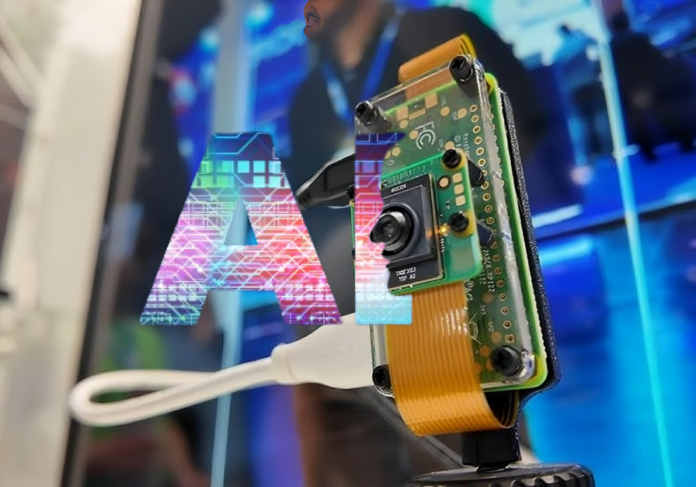Raspberry Pi has introduced a groundbreaking AI powered camera module in collaboration with Sony, retailing at an accessible price of $70. This innovative product is designed for developers focused on creating edge AI solutions.
Unleashing the Power of the AI-Powered Camera
The AI-powered camera integrates Raspberry Pi’s RP2040 microcontroller with Sony’s advanced IMX500 image sensor. This synergy enables users to process visual data without the need for additional components like GPUs or accelerators, making it a game-changer in the realm of AI development.
This launch represents a significant step in Raspberry Pi’s commitment to AI technology, building on a legacy of camera modules that dates back to 2013. The AI powered camera boasts a 12.3-megapixel resolution and is capable of capturing 10 frames per second at a stunning 4056 x 3040 resolution.
Alternatively, it can achieve 40 frames per second at a lower 2028 x 1520 resolution. With a 76-degree field of view and manually adjustable focus, this module closely resembles last year’s Camera Module 3.
Eben Upton, CEO of Raspberry Pi Ltd., stated, “AI-based image processing is becoming an attractive tool for developers around the world. Together with our longstanding image sensor partner, Sony Semiconductor Solutions, we have developed the Raspberry Pi AI Camera, incorporating Sony’s image sensor expertise. We look forward to seeing what our community members can achieve using the power of the AI-powered camera.”
The new AI-powered camera is fully compatible with all Raspberry Pi single-board computers, further broadening the scope of AI applications available to developers.
How the Raspberry Pi AI Powered Camera Works
The AI-powered camera, collaboration between Raspberry Pi and Sony, serves as a robust tool for AI enthusiasts and developers. It merges the processing capabilities of the Raspberry Pi with the sophisticated image processing functionalities of Sony’s IMX500 Intelligent Vision Sensor.
Key Components and Functionality:
- Raspberry Pi: The single-board computer acts as the core processor, running AI algorithms and models while interpreting the visual data captured by the sensor.
- Sony IMX500 Sensor: Designed for high-quality image and video capture, this sensor includes built-in AI capabilities that allow for basic image processing tasks, thereby reducing the workload on the Raspberry Pi.
- On-board AI Processing: The AI-powered camera can perform real-time tasks such as object detection, image classification, and facial recognition. This enables the camera to analyze its surroundings without relying on cloud connectivity or additional hardware.
- Edge AI Applications: Ideal for edge AI solutions, the AI-powered camera performs local processing on the device, minimizing latency, enhancing privacy, and facilitating real-time responses.
Operational Workflow:
- Image Capture: The IMX500 sensor captures images or videos and transmits the data to the Raspberry Pi.
- AI Processing: The Raspberry Pi processes the captured data using AI algorithms, which may be pre-trained models or custom-built by developers.
- Real-time Analysis: The algorithms analyze the visual data, extracting critical information such as object identification, facial recognition, or motion tracking.
- Output: The camera can present output in multiple formats, including displaying results on a screen, transmitting data to connected devices, or initiating specific actions based on analysis.
Potential Applications:
- Smart Home: Applications in home security, facial recognition for access control, and automation of tasks based on visual cues.
- Robotics: Object detection and navigation for autonomous robots.
- Industrial Automation: Quality control, machine vision, and predictive maintenance.
- Healthcare: Medical image analysis, patient monitoring, and assistive technologies.
- Research: Scientific experiments, data collection, and analysis.
By harnessing the combined power of Raspberry Pi and Sony’s imaging technology, the AI-powered camera presents a versatile and user-friendly platform for a diverse range of AI applications.


